

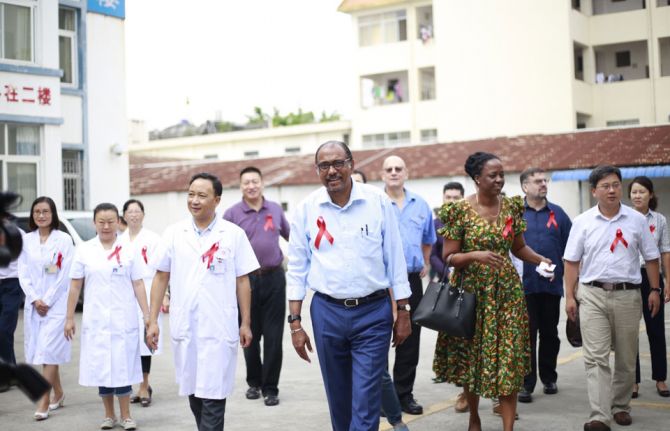
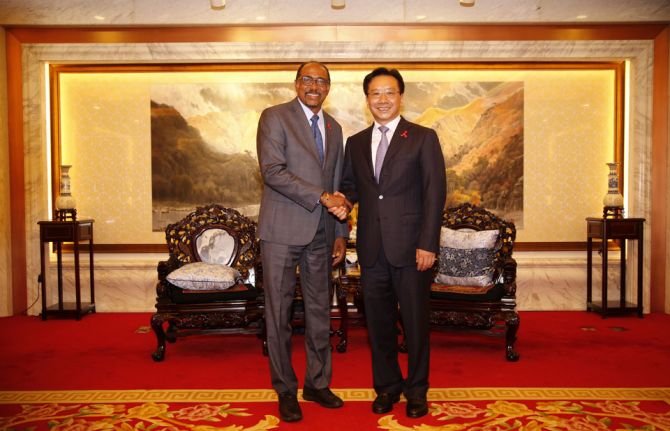
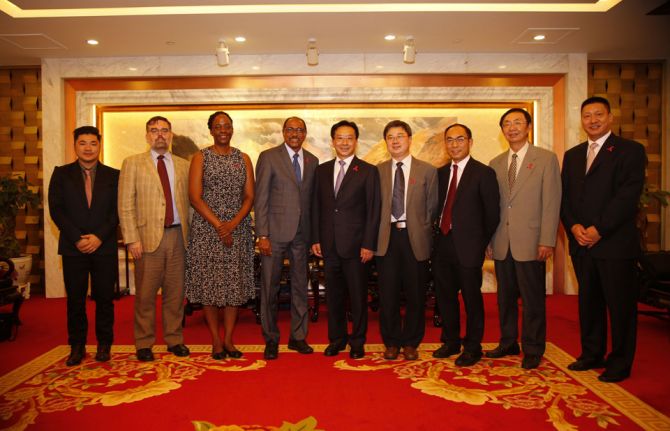
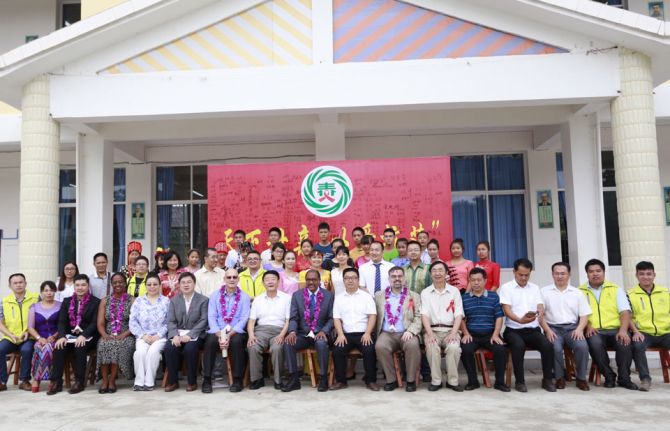
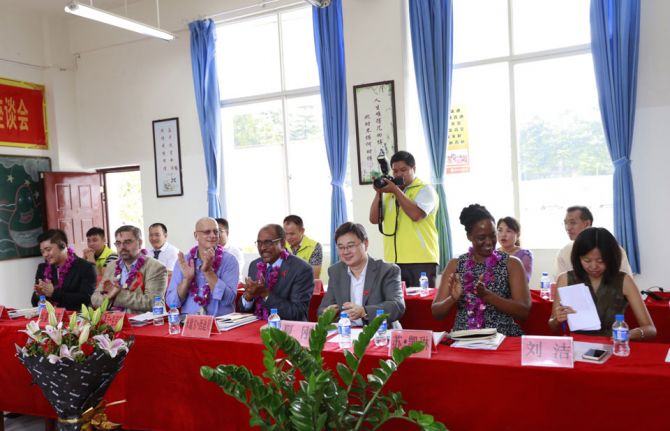
Feature Story
Dehong makes remarkable turnaround in its AIDS epidemic
12 September 2016
12 September 2016 12 September 2016The village of Jiele is where China’s first HIV cases were reported in 1989. Located in Dehong prefecture in Yunnan province, the village experienced an AIDS epidemic that resulted in almost 200 deaths. However, a quarter of a century later, the village is now brimming with hope and renewed energy.
“In the past, everyone was so scared of HIV, but now we are getting great health services and we are living normal healthy lives. We are not afraid of HIV anymore,” said a resident of Jiele.
The more than 100 people currently living with HIV in the village are receiving regular check-ups and almost all are on HIV treatment. The village’s success is echoed across Dehong prefecture, which was at the heart of China’s early AIDS epidemic.
Located near the opium producing areas of the Golden Triangle and the major drug trafficking routes, Dehong’s initial HIV cases were among people who inject drugs, as well as sex workers and their clients. In the past 15 years the prefecture has worked with community organizations, the central government and international organizations and has implemented a wide range of innovative measures, leading to a remarkable turnaround in the AIDS epidemic.
During a week-long mission to China, UNAIDS Executive Director Michel Sidibé witnessed the achievements made in Dehong. He met with officials and community groups and visited a range of sites, including Ruili Hospital on 7 September. He saw how the city hospital provides one-stop-shop HIV prevention and treatment services, including health education, HIV testing, methadone for people who inject drugs and prevention of mother-to-child transmission of HIV services.
In 2009, Dehong started to decentralize antiretroviral therapy management down to the community level for people living with HIV who had been accessing treatment for more than a year. Ruili Hospital provides assistance and technical support to the community-level antiretroviral therapy sites, which in 2014 were providing treatment to more than 600 people living with HIV.
“Ruili Hospital is a model of how one-stop-shop HIV services save lives and money,” said Mr Sidibé. “It’s remarkable how the hospital is spreading its know-how down to the community level and ensuring that quality health care is available in even the most remote corners of China.”
“The fourth round of the People’s War against AIDS has just been launched in Yunnan,” said Gao Feng, Vice-Governor of Yunnan. “We are confident we will achieve the 90–90–90 targets by 2020 in Yunnan.”
Dehong’s HIV response has evolved to meet the new challenge of providing quality health care to cross-border migrants. While in most parts of China access to key HIV services, such as treatment and methadone, require a Chinese identification card, in Dehong, HIV treatment is available to non-Chinese people who can present residence and employment permits and health certificates.
Mr Sidibé visited Jiegao, which is a district of Ruili where around 50 000 Burmese people are estimated to live. The Needle Exchange and Methadone Maintenance Treatment Extension (MMT) sites provide services to mainly migrants who inject drugs. Truck drivers crossing the China and Myanmar borders are provided with comprehensive services at a government-funded truck driver action spot. The services include health education, HIV counselling and testing, condom distribution, and referral to HIV treatment.
The local government in Dehong has a strong partnership with community-based organizations, which have played a key role in reaching migrants and people who use drugs, engage in sex work or are living with HIV.
Owing to these effective strategies, Dehong is the only prefecture in Yunnan province to receive public recognition for having reversed its AIDS epidemic. Health authorities report that HIV treatment coverage is around 60% of all people living with HIV, while prevention of mother-to-child transmission of HIV programme coverage is 100%. In Ruili, among people living with HIV eligible for antiretroviral therapy, the mortality rate has decreased by 95% compared to 2005. There were zero new HIV infections reported among people who use drugs attending MMT clinics from 2008 to 2014 and no babies born to pregnant women living with HIV have been reported to be HIV-positive since 2008. Dehong’s success is all the more remarkable as neighbouring prefectures in Yunnan province continue to experience expanding epidemics.
“Political leadership and engagement with communities and programmes based on scientific evidence can inspire other communities in China to end the AIDS epidemic,” said Mr Sidibé.



